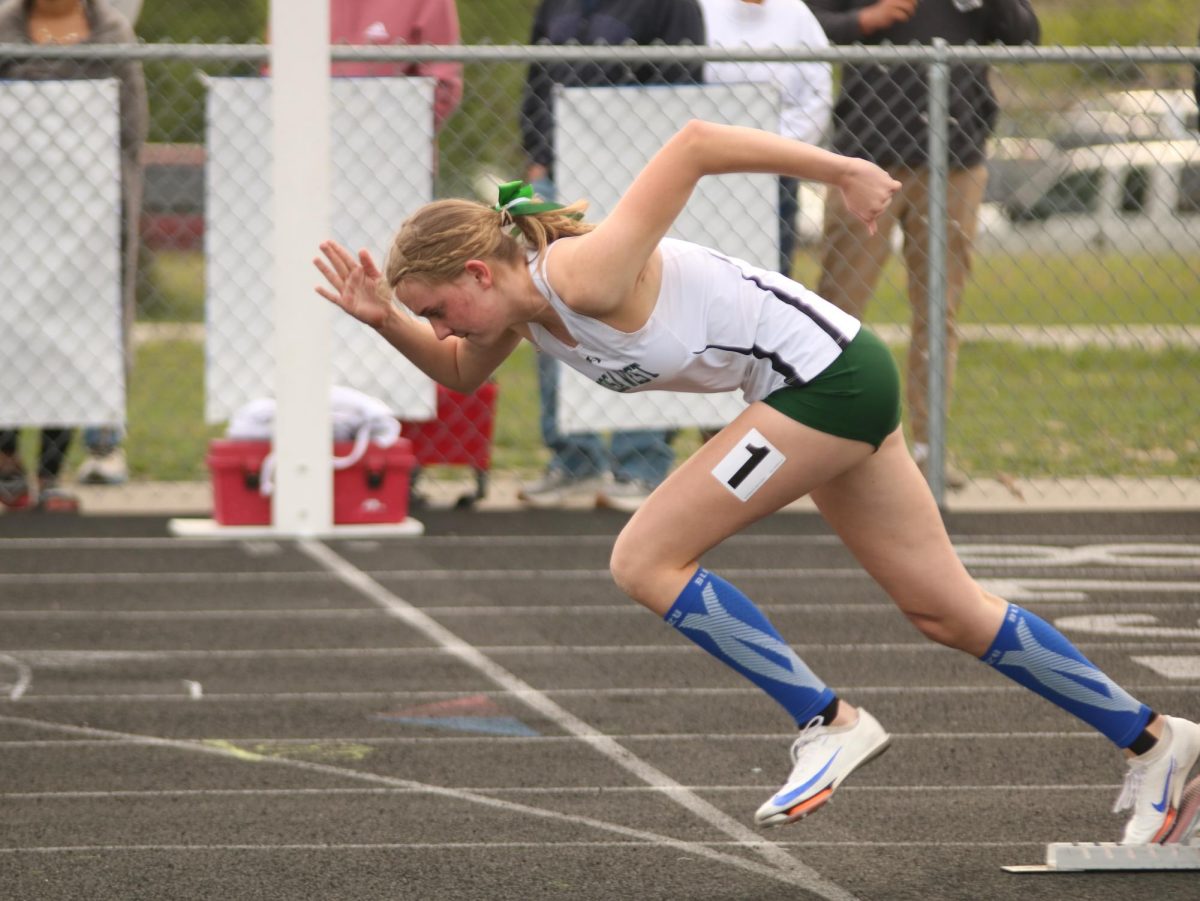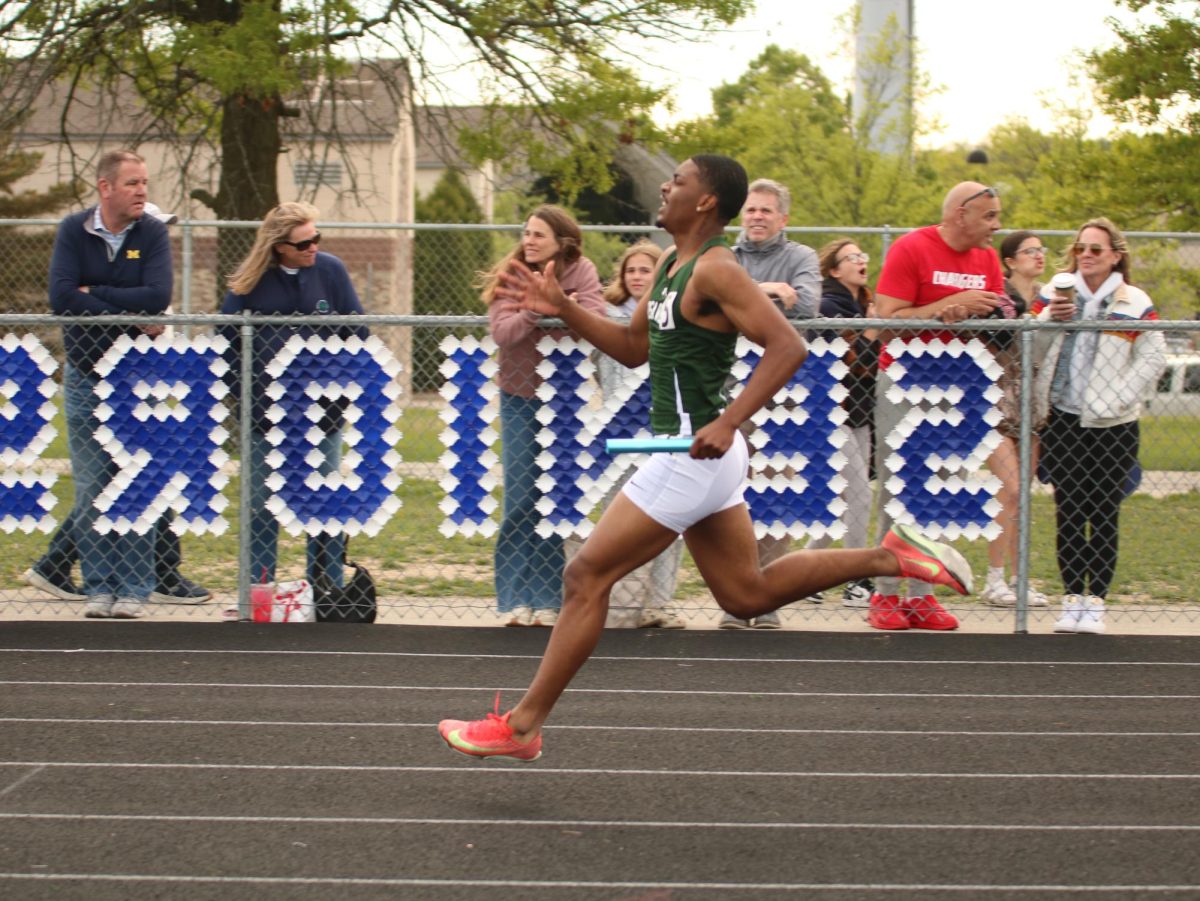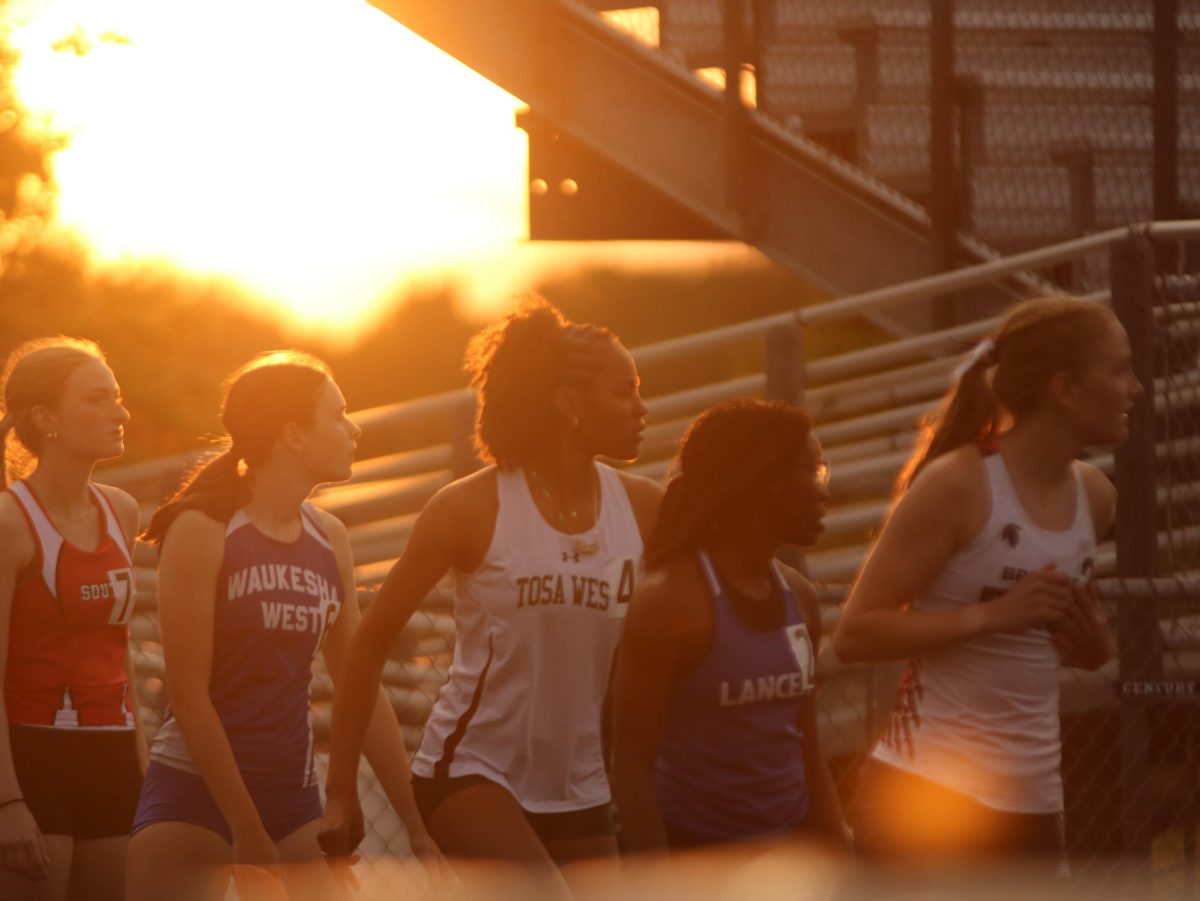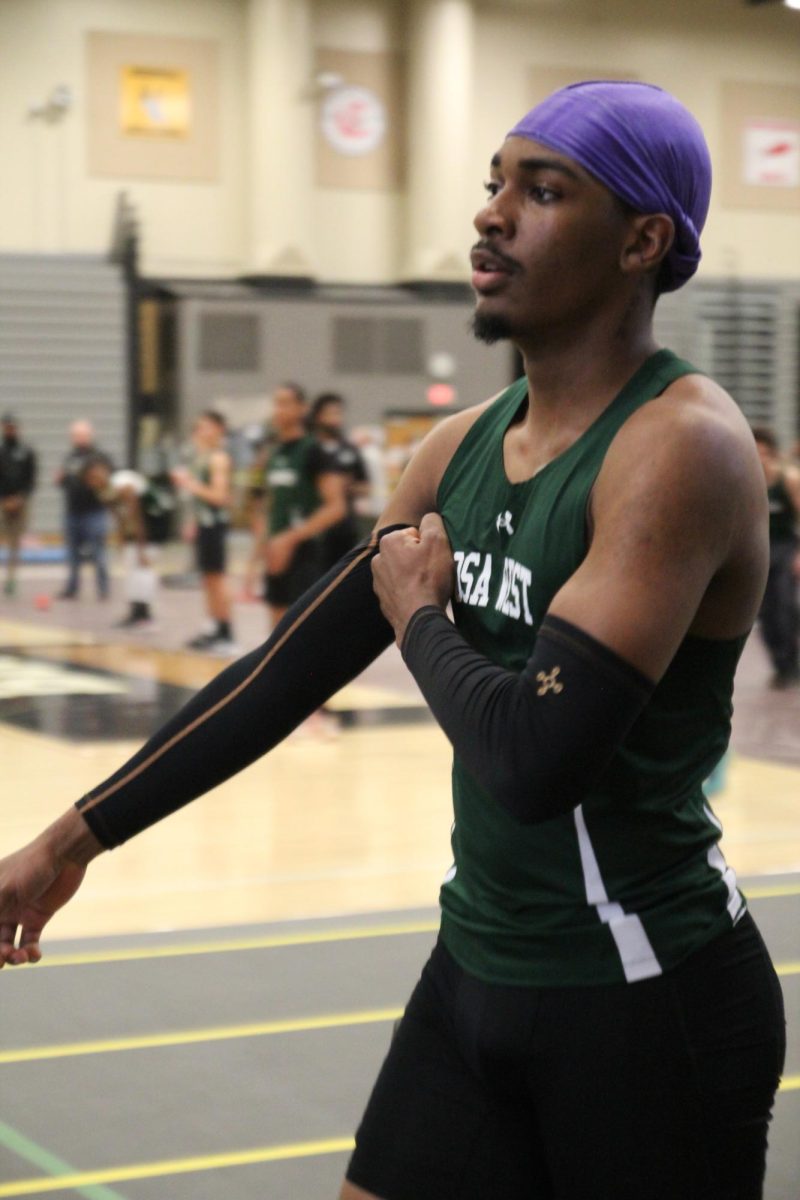Being a Tosa West sprinter not only requires intense bursts of muscle and physical energy, but also requires mental strength and focus.
“My mind goes blank, I get my whole body set in the blocks and breathe in and hold my breath and when the gun is shot I blow it out,” said Junior Kevin Johnikin.
Over a dozen Tosa West sprinters compete in individual sprints of 100, 200 and 400 meters as well as relay events. The 4 X 100, 4 X 200 and 4 X 400 relay involves 4 students who each run a 100, a 200 or a 400 meter sprint. 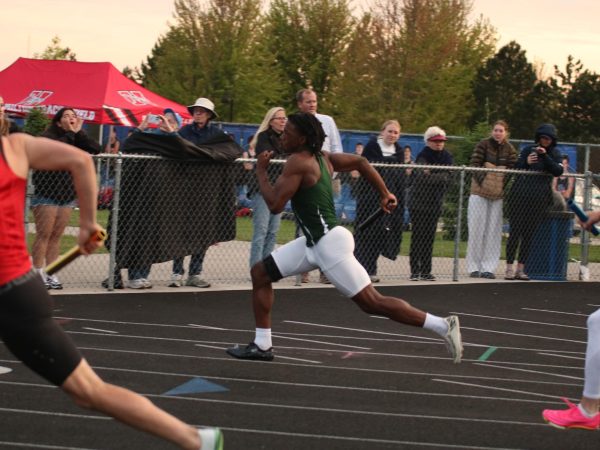
Each event is fast and intense and none lasts more than two minutes. Being a sprinter requires a lot of training, speed drills, mental focus and positive mindset. The development of these skills supports student success both on and off the field.
The track season runs from March until June. Daily practices and meets can have an impact on an athlete’s physical health.
“The biggest challenge I’ve faced was my health and being healthy consistently during this outdoor track season,” said Johnikin.
Mental health can also be a factor in athletic performance.
“The biggest challenge I’ve faced this season was my mind most definitely, it holds me back in a lot of my races and it’s always unintentional but it still happens. Like stuttering on 300h or not getting my 3 steps down in the 100h and also not coming out fast in the 400 because I’m scared of burnout. I’m scared for others to see my failure and what they’ll say,” said Mackenzie Sanders.
Other students struggle with the intense pressure of competing at meets.
“My biggest challenge I faced during track was lining up and setting my blocks at state in the 4×4, in a completely different environment with everyone’s eyes on my back was totally different feeling then butterflies in my stomach,” said Junior Roman Long
Each track event has its own coach and they each play a big role in supporting student success.
“My hurdle coach always pushes me at practice and highlights my abilities but also my weaknesses to help me get better,” said Sanders.
Coaches also support students’ mental and physical challenges.
“My high school coach always lets me know that it is okay to not win every time and to give myself grace but he also lets me know that i still have time left and that it’s not over yet,” said Sanders.
When athletes are injured, coaches also play a role in helping the athletes.
“Coach Good has supported me greatly this season with dealing with an injury all season and he has been a great person for me to rely on,” said Johnikin.
The track season runs from March until June. Daily practices and meets have can a toll on a body and mind.
“The biggest challenge I’ve faced was my health and being healthy consistently during this outdoor track season,” said Johnikin.
Mental health can also be a factor in athletic performance.
“The biggest challenge I’ve faced this season was my mind most definitely, it holds me back in a lot of my races and it’s always unintentional but it still happens. Like stuttering on 300h or not getting my 3 step down in the 100h and also not coming out fast in the 400 because I’m scared of burnout. I’m scared for others to see my failure and what they’ll say.” said Sanders
Other students struggle with the intense pressure of competing at meets.
“My biggest challenge I faced during track was lining up and setting my blocks at state in the 4×4, in a completely different environment with everyone’s eyes on my back was a totally different feeling then butterflies in my stomach”. Said Long
Coaches help students navigate the challenges of performing physically and mentally over the course of the season.
“At Tosa West especially I feel we have a very competitive atmosphere with having some state podium contending relays that everyone wants to work hard and be on.” said Johnikin
Coaches provide a variety of support from specific feedback on strengths and weaknesses to helping recover from a loss.
“Coach’s push and support me by showing me better than just telling me what to do. My hurdle coach always pushes me at practice and highlights my abilities but also my weaknesses to help me be better.” said
Coaches also support students’ mental and physical challenges..
“My high school coach always lets me know that it is okay to not win every time and to give myself grace but he also lets me know that i still have time left and that it’s not over yet.” said Sanders
When athletes are injured, coaches also play a role.
“Coach has supported me greatly this season with dealing with an injury all season he has been a great person for me to rely on.” said Johnikin. 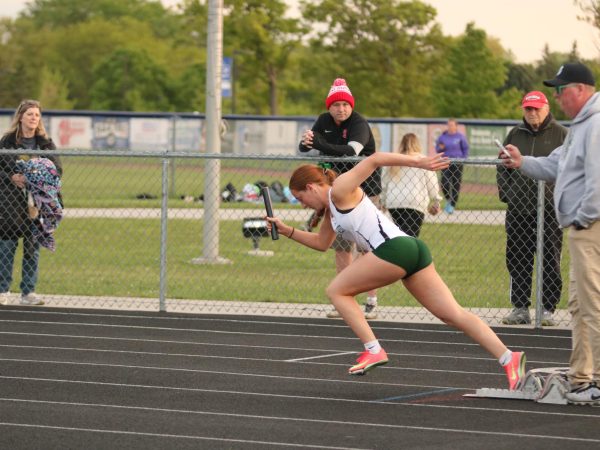
Some sprinters extend their season beyond the season which expands the amount of coaching and support. Mackenzie Sanders supported her AAU team Milwaukee Mustangs.
“For instance, my AAU coach picks me up from school and takes me home and sometimes we’ll go work out. He would even take me on trips out of town to go run at meets and get my name out there.” said Sanders
Being a sprinter you learn a lot about yourself. Not only who you are but what you want to do.
“Being a sprinter has changed my whole perspective on everything. Now i’m so dedicated to the sport track and field that I want to run at the college level which includes having good grades to make it as far as I can.” said Kevin.
Regardless of their drive and success during the season, being a track athlete in the intense sport of sprinting has impacts off the track.
Being dedicated to the sport of sprinting has an impact beyond the track and helps shape and drive student awareness of themselves in other aspects of their life like school and work.
“What I’ve learned from sprinting is that you never rest in the middle, you rest at the end. I apply that to my life by never giving up in the middle and whenever I do something I’m going to do it right and thoroughly to the best of my ability,” said Sanders.



